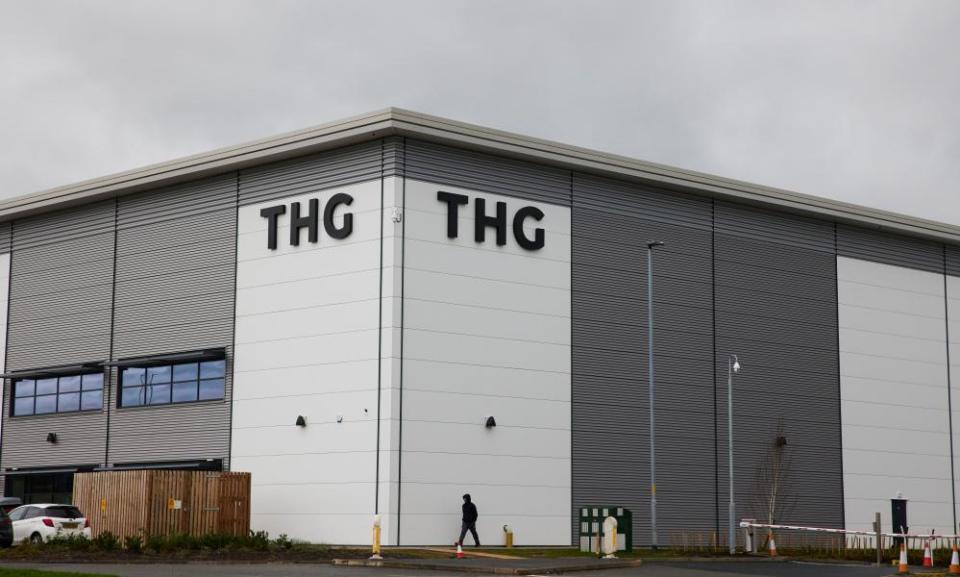THG boss should count the blessings of life as a listed company

Matt Moulding and the board of THG did the easy bit last week: they rejected a “highly preliminary” takeover proposal from a consortium led by one of the online retailer’s own non-executive directors. It will have been a simple decision, because rolling over at 170p a share, or £2.1bn, would be humiliating. Even some of the bears who used to get stuck into THG in the days of a 600p-plus share price thought fair value for this baffling group might lie around the 175p level.
What, though, would Moulding do if a serious bid – which a few in the City define as one around 250p a share – were to turn up? Such a plotline looks unlikely (as the current share price of 139p indicates), but the working assumption is that he’d be tempted by the idea of going private. He spoke of “options” in the infamous interview with GQ magazine last year in which he said listing in London “sucked from start to finish”.
If so, Moulding should remember that the grass is not always greener elsewhere. If the private route were intended as an excursion on the way to a US listing, he should note that American markets – the ones he eyed enviously – have subsequently clobbered the value of almost every “pre-profit” tech stock.
Second, going public in London hasn’t been so awful for THG, all things considered; the company raised £920m of fresh equity at listing in 2020 and then another £800m exactly a year ago via a placing that brought in SoftBank and investment firm Sofina. The public markets, in other words, set him up with the resources to prove there’s a real long-term business within THG.
Third, if he doesn’t like the wicked short-sellers found in public markets, a return to private ownership may not be a picnic either. Yes, THG inhabited that private equity world before its float at 500p, but that was an era of cheap cash and punchy investment appetites. Life, and private investors’ short-term demands, have moved on.
Moulding should count his blessings: stock-market life is bumpy, but he retains enormous freedom to manage the business as he wishes. The private option might just load another layer of uncertainty on to the company.
Home improvement chain gets house in order
Depending on how you read the first-quarter numbers, B&Q owner Kingfisher’s power drill is either on the blink or working splendidly. Welcome to investors’ difficulty: how to assess the current strength of consumer demand when Covid trading conditions have distorted comparisons.
At B&Q itself, for example, sales were a thumping 18% below the same period a year ago, which feels a lot even when one remembers the whoosh in those months from working-from-home factors. On the other hand, B&Q’s like-for-like revenues were 16% better than in the last equivalent pre-Covid quarter, so maybe there has been real underlying progress.
Kingfisher’s chief executive, Thierry Garnier, did his best to encourage the cheery interpretation by describing demand as “resilient” and saying inflationary and supply chain pressures were being managed “effectively”. More to the point, he’s sticking to the previous profit forecast of £770m this year and threw a £300m share buy-back into the mix for good measure. The positive turnaround in the two French businesses – Castorama and Brico Dépôt – is clearly helping.
The shares, though, have fallen by a third since the start of this year in anticipation of the day when the cost of living squeeze hits sales of kitchens and bathrooms. At that point, say the bears, we’ll be talking again about how Kingfisher is a “big box” retailer in a digital age.
It will probably be six months, at least, before a clearer picture emerges. But one can probably say this already: the group is gaining market share in most places and looks a nimbler beast now that Garnier has reversed his predecessor’s obsession with centralisation. Kingfisher won’t be able to defy a storm in DIY-land, but it looks a net winner from the pandemic.
Publishing pay ratios won’t narrow the pay gap
Sadly, the disclosure of pay ratios between FTSE 350 chief executives and their workers, as required by Theresa May’s government, was never accompanied by an obligation on boards to feel shame. An undemanding explanatory “narrative” is all that’s required. Thus it is no surprise to see the High Pay Centre predict a widening in the pay gap this year.
Still, here’s a suggestion for more disclosure from Paul Lee of consultants Redington: oblige large companies to say what proportion of their UK workforce is paid the “real living wage”, as set by the Living Wage Foundation. Good idea: a league table would get noticed and may cause more embarrassment.

 Yahoo Finance
Yahoo Finance 